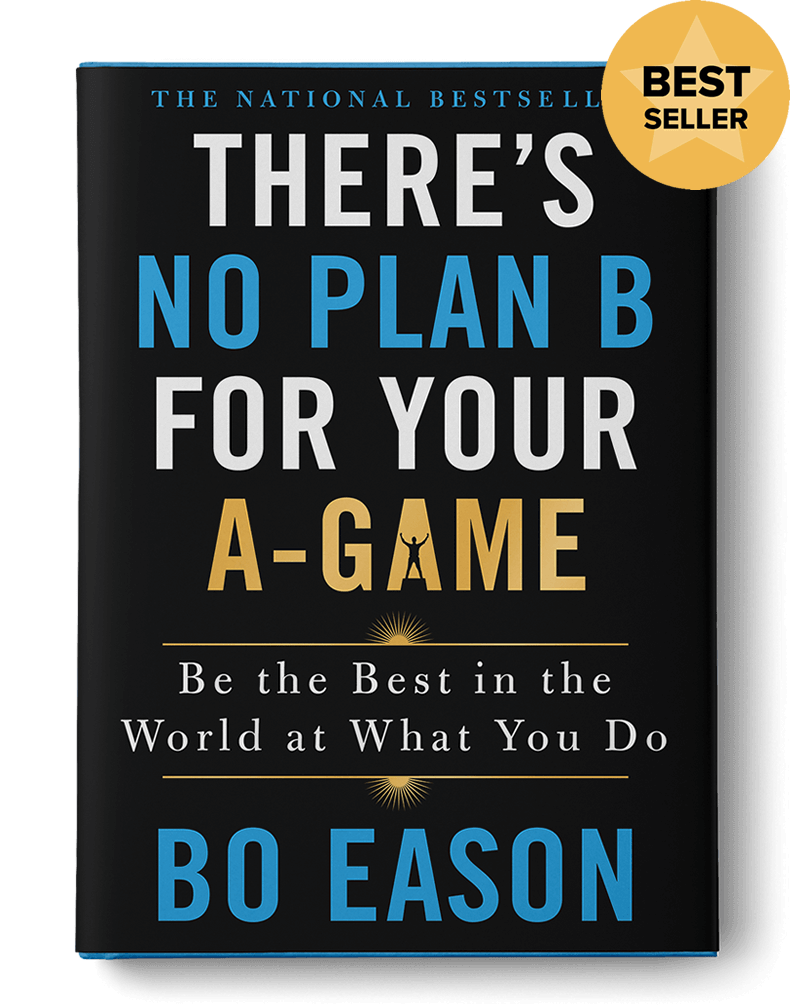Bo: We’re here with Dr. Joan Rosenberg. Joan, I’ve got this one quote that I’ve known for 15, 16, 17 years and it always makes sense to me and hits me in the solar plexus. It’s from a book called Wild at Heart by an author named John Eldredge. I can’t remember if it’s Eldredge that actually says this quote or if he’s quoting some famous person but it goes like this: “A man’s addictions are a result of his refusing his strength.” Let me say that again: “A man’s addictions are a result of his refusing his strength.” That’s always gotten me. If you think of our addictions, you know, our people’s addictions in the world, whether it’s TV or …
Joan: Pornography, gaming, shopping …
Bo: Right?
Joan: Alcohol, drugs … we can go on and on.
Bo: Or work.
Joan: Yep.
Bo: All of these things. I always see those things as distracting. They’re distractions.
Joan: You’ve absolutely named it.
Bo: Is that right?
Joan: Absolutely named it. So two quick thoughts on this: One is when I think of addictions, I think of diseases of isolation.
Bo: Huh. Okay.
Joan: I’ve cut myself off from everybody else and if this is my drink (holds sunglasses), I’ve only made this important to me. So now this is my buddy, this is my friend that can never leave me. But that’s not real life actually. So one is I become very isolated and insulated from everybody else if I’m dialed into an addiction. The second, which you nailed when you said “distractions”, I think of it as a way to distract and disconnect from everything that’s inside of me. So basically, if I’m addicted to something, it doesn’t matter what it is I’m addicted to, I’m using it to disconnect and distract from some moment-to-moment experience in me. What I’m thinking, what I’m feeling, what I’m believing, what I’m needing, what I’m perceiving—I’m using it to check out from all the aliveness in me. So if I’m checking out from all of that, I can’t possibly be in my strength.
Bo: Right.
Joan: So I can totally get why he says addictions don’t allow somebody to be in their full strength.
Bo: Right. I totally get that and the older I get, with men my age, it’s really apparent. You start to see it more and more. And it can be very subtle. Like it could be what we would call a good addiction. You know what I mean? But it is a distraction from who they are, from the expression that they want to make.
Joan: And I think of it as deadly.
Bo: Yeah.
Joan: It actually robs us of our aliveness.
Bo: I always have fantasies like this: What if every time you opted for the distraction or the addiction rather than your mission, what if every time you did that a boxing club hit you right in the nose. I have dreams of that happening. So every time you get over here distracted off your mission or your dream, you’re punched hard in the nose.
Joan: That’s a wake-up call.
Bo: Right? How long do you think you’d be distracted?
Joan: You’d be staying close on the mission.
Bo: We’ve got to work on a product like that.
Joan: But again, staying on course with the mission allows you to pursue the best. If you’re addicted, you’re deadening the aliveness. But it is the pursuit of your mission; it is the pursuit of being the best that actually draws the most aliveness out of you. You feel more vitality. You feel more purposeful. Your life has more meaning. The addiction robs you of that aliveness and that meaning.
Bo: That’s good. And so I always look for a place when I’m going through a distraction like this, I’m always looking for a place to right the ship. So then I know when I’m off course. So when I’m in one of those addictions, whether it’s watching the news or watching sports—some could say, “Well, that’s not an addiction, that’s fine,” unless, I’m using it for other purposes. Whenever I find myself distracted over here, I know where the mission is—it lives right over here. Distraction lives here and the dream lives an inch over here. So every time I’m here, all I’ve got to do is keep righting that ship. That’s the tool that you’ve got to employ. And you know when you do it. We know.
Joan: Yes, we do. We know when we’re using something to pull us off.
Bo: So use that tool. Right the ship so that you’re on your dreams and you’re living your life with purpose. You’re writing the story of your life and living it out how you want it, not how the TV wants it or the media wants it or whatever the distraction, so get out there and try that too.
A lot of the topics that we’re talking about with Joan—and it’s why I have her at my events, it’s why I have her here—if you want to go deeper with her and learn more about her, she has a podcast called The MindStream Podcast by Dr. Joan Rosenberg. And Joan, tell us a little bit about it.
Joan: It’s on iTunes and I cover a wide range of psychological topics. There’s a segment called “Words that Inspire” where I’m drawing ideas from books. I’m going to start doing interviews. We talked about scheduling one with you.
Bo: That’s right, I’m going to be on it.
Joan: That’s right. There’s one that has to do with how to handle failure and being afraid of taking risks. There’s another one on dealing with self-sabotage and breaking free of the obstacles that hold us back. There’s a wide range of topics that really fit with the whole storytelling experience. The subtitle of The MindStream Podcast is “How to Design a Fully Expressed Life.” So that’s really what we’re talking about—going for the best, feeling more alive and being more fully expressed. So a lot of topics that will really serve and I hope you listen.

